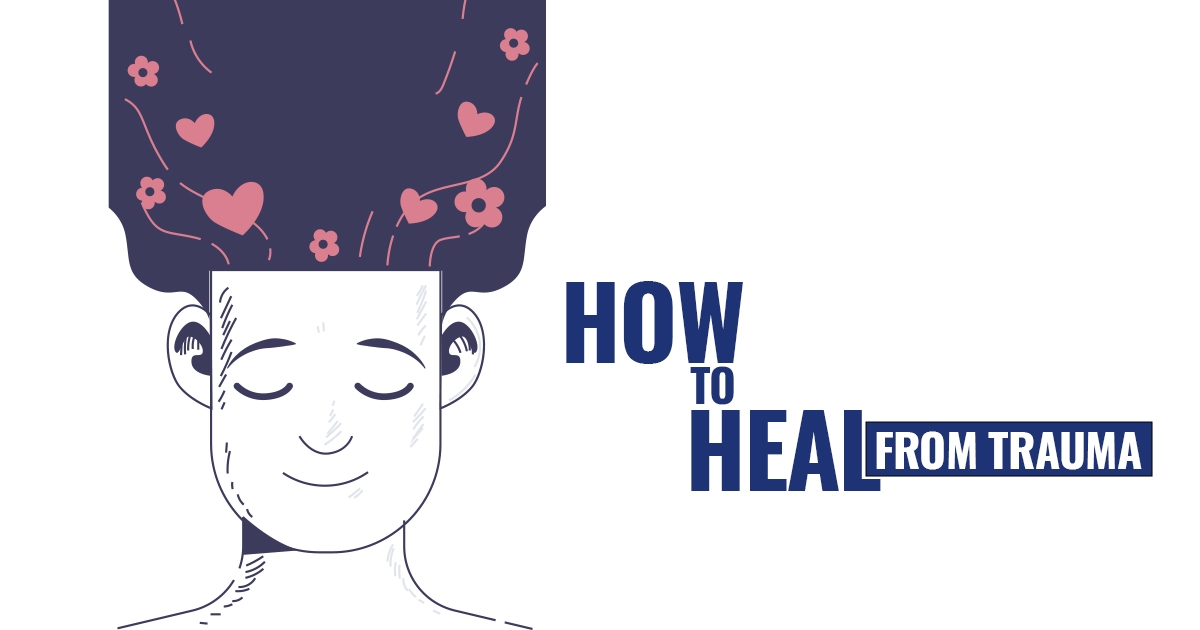The word ‘trauma’ can conjure up different images for different people, but most of us can immediately think of an experience that was traumatic for us. Unfortunately, where nearly everyone has experienced a trauma, far too few know how to heal from trauma. Whether to heal from childhood trauma, emotional trauma, or even physical trauma, we struggle to understand what it even means to ‘be healed.’
Healing From Childhood Trauma
Far too many people believe that childhood trauma is ‘no big deal’ and may try to convince you that you should just “get over it,” but that is not the case at all. While you want to work through it, this type of trauma is authentic and can be detrimental to your adult life if you do not address it. That’s where getting the proper treatment and care is essential.
It starts with seeking the help of a mental health expert as early as possible. Whether you speak with a psychologist, a psychiatrist, a therapist, a counselor, or anyone else, a mental health professional can help you:
- Validate your experience
- Take control of your life
- Feel supported and heard
- Regain control of your mental and physical health
- Work through the feelings/memories
- Process associated emotions
While some people may say that they have worked through their trauma alone or may elect to ignore that it ever happened, working through it with a trained professional is the best way to truly overcome all of the ways that childhood trauma could be affecting you even in your adult life.
Healing From Emotional Trauma
Now, emotional trauma encompasses a range of different things, and it does occur as a result of childhood trauma. It can also occur due to trauma that happens during your adult life. The critical thing to understand is that trauma may be an ongoing experience, such as sexual assault or a single event such as the sudden death of a loved one.
In general, trauma is about an event (whether short-term or long-term) that has a significant, long-term impact on an individual, and that is why it’s so important to get support and treatment right away.
This type of trauma generally causes fear and anxiety but may also cause insomnia, nightmares, and health problems. Also, it typically comes from a consistent or chronic feeling of being unsafe. And all of this can cause changes to your brain that can be permanent.
The Trouble with Unresolved Trauma
When it comes to determining how to heal from trauma, we also have to look at just why you need to focus on recovery at all. Often, it’s not just those on the outside looking in who say that an event is ‘fine’ or that we should ‘just forget it’ or ‘move on with your life.’ All too often, the individual who suffered the trauma in the first place says these things to themselves, either after hearing them from others or just because they think it will make things easier.
For those who choose to tamp down their feelings, ignore them, or pretend the event never happened, however, things can continue to get worse. Healing trauma does not happen from simply shoving it under the rug and hoping that the feelings and thoughts will disappear. While they might in the short-term, they most certainly will resurface, generally at a most inconvenient time for you.
Trauma can cause a range of different feelings, emotions, and physical conditions in the immediate aftermath that can persist throughout the rest of your life if the trauma remains untreated.
- Denial
- Confusion
- Insomnia/trouble sleeping
- Anger
- Fear
- fatigue
- Guilt
- Anxiety
- Muscle tension/pain
- Depression
- Flashbacks
- Headaches
- Trouble concentrating
- Withdrawal
- Chest pain
- Chronic pain
- Post-traumatic stress disorder
Unresolved trauma can crop up again without warning, even in seemingly unrelated situations. For example, when you first move into your place or move in with a roommate or partner; when you begin or end a serious relationship. When you lose a loved one or face a significant change in your life, trauma could resurface when there is no major difference in your life. It could simply resurface one day long after you thought you had buried it.
When that unresolved trauma pops up, it can be detrimental to your mental and physical health, relationships, work, and overall enjoyment of life. These are all reasons it is crucial to get help with understanding how to heal from trauma.
Getting Treatment for Trauma
Once you’ve started working with a mental health professional, you’ll be on the right track, but they can’t do everything for you. Instead, a mental health professional will be able to start you on the path and give you guideposts and goals to work toward.
Once you’ve gotten that starting point and know what you’re working toward, it will be up to you to do so. Yes, your mental health professional will be there with you along the way, but you are the one who will be going through the day-to-day and making the changes necessary to achieve what you want (and deserve) most.
The Earlier, the Better
When it comes to learning how to heal from trauma, you should seek help as early as possible. The longer you wait to get help, the more the trauma can negatively affect you, which means working through it could take you longer and wreak more havoc along the way. The mental and physical side effects of trauma can worsen the longer they are untreated.
By seeking professional help at Story Wellness, you can get started on the process toward getting your life back, which is what you deserve. Allowing the person or situation that caused your trauma to continue to hold control over you is not fair to you. But it is possible to make a change, and it all starts with a decision that only you can make. So, make that life change and call (866) 476-2823 now.





